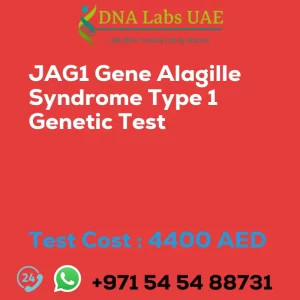ALX4 Gene Frontonasal Dysplasia Type 2 Genetic Test
At DNA Labs UAE, we offer the ALX4 Gene Frontonasal Dysplasia Type 2 Genetic Test. This test is designed to identify mutations or variations in the ALX4 gene that may be responsible for the condition. The test can help confirm a diagnosis of frontonasal dysplasia type 2 and provide information about the specific genetic variant involved.
Test Details
The ALX4 gene is associated with frontonasal dysplasia type 2, a condition characterized by abnormal development of the frontonasal region, including the forehead, nose, and upper jaw. Symptoms of frontonasal dysplasia type 2 can vary but may include a broad or bifid nasal tip, cleft lip and/or palate, hypertelorism (increased distance between the eyes), and other facial abnormalities.
Our ALX4 Gene Frontonasal Dysplasia Type 2 Genetic Test utilizes Next-Generation Sequencing (NGS) technology. NGS genetic testing can analyze multiple genes simultaneously, allowing for a comprehensive evaluation of the ALX4 gene and other relevant genes. The test involves obtaining a DNA sample, usually through a blood sample or cheek swab, and then sequencing the DNA using advanced technology.
Test Components and Price
The ALX4 Gene Frontonasal Dysplasia Type 2 Genetic Test is priced at 4400.0 AED. The test requires a blood sample or extracted DNA, or one drop of blood on an FTA card. The report delivery time is typically 3 to 4 weeks.
Test Type and Doctor
The ALX4 Gene Frontonasal Dysplasia Type 2 Genetic Test falls under the category of dysmorphology testing. Our team of experienced pediatricians specializes in conducting this test and interpreting the results.
Test Department and Pre Test Information
The ALX4 Gene Frontonasal Dysplasia Type 2 Genetic Test is conducted in our Genetics department. Before undergoing the test, it is important to provide the clinical history of the patient who is going for the test. Additionally, a genetic counseling session will be conducted to draw a pedigree chart of family members affected by the ALX4 Gene Frontonasal Dysplasia Type 2.
Benefits of Genetic Testing
Genetic testing can be highly beneficial for individuals with suspected frontonasal dysplasia type 2 and their families. It provides a definitive diagnosis, guides medical management and treatment decisions, and informs genetic counseling and family planning.
However, it is essential to note that genetic testing may not be necessary or appropriate for everyone. The decision to undergo testing should be made in consultation with a healthcare professional who can provide personalized advice based on the individual’s specific situation.
| Test Name | ALX4 Gene Frontonasal dysplasia type 2 Genetic Test |
|---|---|
| Components | |
| Price | 4400.0 AED |
| Sample Condition | Blood or Extracted DNA or One drop Blood on FTA Card |
| Report Delivery | 3 to 4 Weeks |
| Method | NGS Technology |
| Test type | Dysmorphology |
| Doctor | Pediatrics |
| Test Department: | Genetics |
| Pre Test Information | Clinical History of Patient who is going for ALX4 Gene Frontonasal dysplasia type 2 NGS Genetic DNA Test. A Genetic Counselling session to draw a pedigree chart of family members affected with ALX4 Gene Frontonasal dysplasia type 2 NGS Genetic DNA Test gene ALX4 |
| Test Details |
The ALX4 gene is associated with a condition called frontonasal dysplasia type 2. This condition is characterized by abnormal development of the frontonasal region, which includes the forehead, nose, and upper jaw. Frontonasal dysplasia type 2 can cause a wide range of symptoms, including a broad or bifid nasal tip, cleft lip and/or palate, hypertelorism (increased distance between the eyes), and other facial abnormalities. NGS (Next-Generation Sequencing) genetic testing is a type of genetic testing that can analyze multiple genes simultaneously. In the case of frontonasal dysplasia type 2, NGS genetic testing can be used to identify mutations or variations in the ALX4 gene that may be responsible for the condition. NGS genetic testing involves obtaining a DNA sample, usually through a blood sample or cheek swab. The DNA is then sequenced using advanced technology that can analyze multiple genes at once. The results of the NGS genetic test can help confirm a diagnosis of frontonasal dysplasia type 2 and provide information about the specific genetic variant involved. Genetic testing can be helpful for individuals with suspected frontonasal dysplasia type 2 and their families. It can provide a definitive diagnosis, guide medical management and treatment decisions, and inform genetic counseling and family planning. However, it is important to note that genetic testing is not always necessary or appropriate for everyone, and the decision to undergo testing should be made in consultation with a healthcare professional. |








